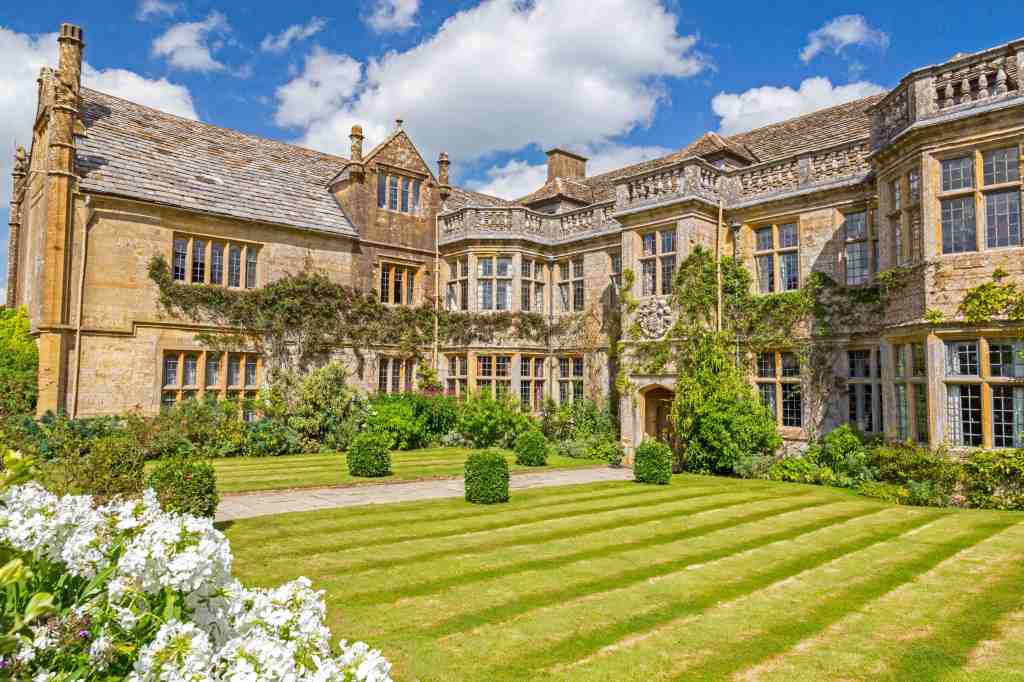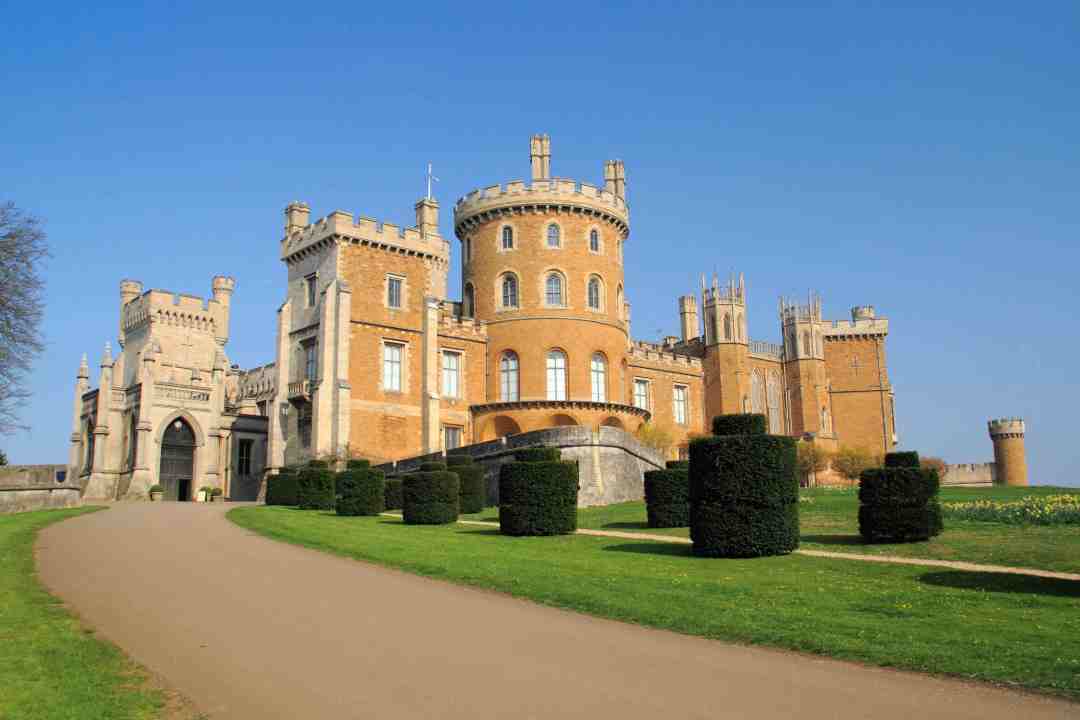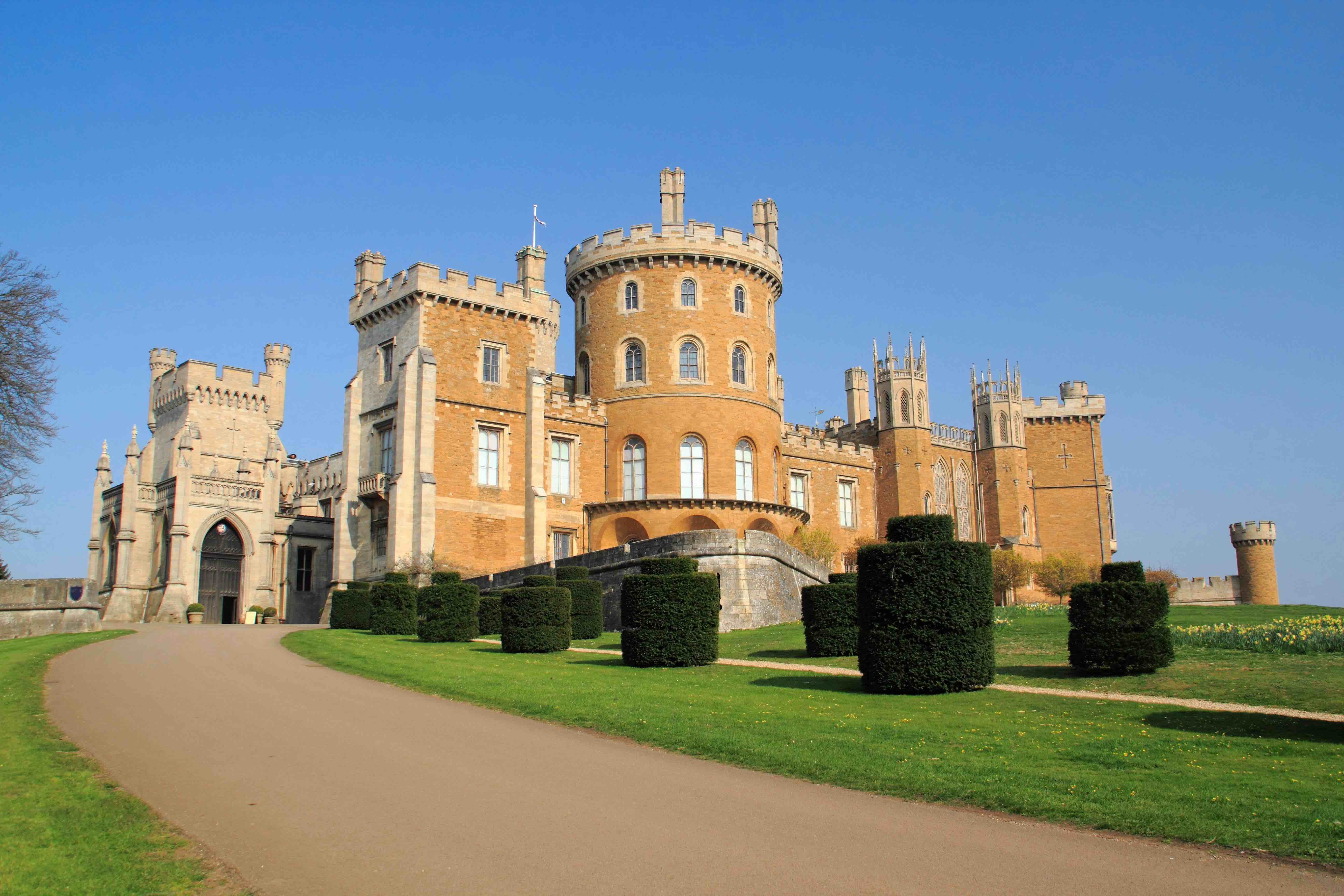You might think someone who grew up in the 356-room Belvoir Castle wouldn’t be too worried by a traffic fine. But when Lady Eliza Manners was caught speeding, she avoided paying off the full £100 ticket by claiming ‘financial hardship’. And apparently she’s not the only budget-conscious occupant of the Leicestershire property. Her mother Emma, the Duchess of Rutland, recently claimed she shops in Asda.
While it might be hard for those on the actual breadline to sympathise with the troubles of the titled and entitled, such states of affairs do stand to some sort of reason. If you think heating your two-bed home has become an expensive business, try being Julie Montagu, Viscountess Hinchingbrooke, whose electricity bill at Mapperton House in Dorset has tripled in the past 12 months to hit £45,000 a year. ‘I can’t put into words how much work is involved in maintaining these historic houses,’ Montagu, who has blisters all over her hands, tells me. ‘Weekends just don’t exist for me. When things break you have to replace them like-for-like, and there’s usually only about two people in the country able to help.’
This is not an uncommon problem. Because in lots of instances, having a vast via-the-bloodline property does not also mean access to a bottomless pit of cash. James Probert of Historic Houses says that between his organisation’s 1,500 members there’s a £2 billion repair and maintenance backlog.
‘I did it out of curiosity, triggered by things like Downton Abbey, and Madonna’s wedding in a castle’
So what are all these impoverished castle owners to do? Many are wisely capitalising on North America’s great obsession with the English aristocracy. The Duchess of Rutland has set up an organisation specifically to cipher money out of the US and into her castle: American Friends of Belvoir Castle. Each ‘friend’ parts with $2,000 for the privilege of joining. Next year she’ll be hosting a gala at The Breakers in Palm Beach to raise even more funds.
Belvoir is far from the only castle being sustained by the dollar. The Earl of Carnarvon, George Herbert, who lives in Highclere Castle (best known as Downton Abbey) tells me he would struggle without all his American visitors and their generosity in the gift shop. Even with the American support, though, castle living is far from a fairytale. ‘There’s never a day when there’s not something being fixed somewhere,’ he sighs. ‘We’ve had quite a struggle over the years.’
Montagu – an American herself – helps prop up Mapperton with a YouTube channel focused on its history. It’s pulled in 166,000 subscribers, 70 per cent of whom are American. She also has a GoFundMe page to raise funds to replace a £10,000 broken lead eagle – many donations for which have come from American supporters.

With all this in mind, poor stately home and castle owners could be forgiven for wanting to sell up, buy a three-bed flat in Fulham and spend the freed-up cash on gilets and Annabel’s membership. And those selling up can often count on American interest.
Director of Savills’s country house department Edward Sugden, who has just flogged a £25 million property in the Cotswolds, says Americans are jumping on the opportunity to invest in high-end UK property as the pound continues to look weak against the dollar. Tim Dansie, a director at Jackson-Stops, tells me: ‘American buyers seem to start in London which they know and then move to the Cotswolds, which they also know. The west of London seems to be slightly trendier.’
The question is, why do Americans want to part with their cash and take on such a burden just for a slice of British heritage? Especially given one of their number recently made a Netflix six-parter about the horrors of living like a princess in the pokey grounds of Frogmore Cottage.
Well, there’s a saying that the difference between America and England is that Americans think 100 years is a long time, while the English think 100 miles is a long way. And this seems to speak to the American attitude to English properties. Mark McAndrew, head of Strutt and Parker’s estate department, says his American buyers are almost always fascinated by the history of a property and rarely mind having to drive a couple of hours from London. No wonder then that last week estate agents felt able to put Buckinghamshire stately home Denham Place, which was used for James Bond scenes, on the market at £75 million. The owner says they’re expecting Americans to take a great interest.
American Ann Kaplan, who lived in Las Vegas for ten years (but is famous for starring in Real Housewives of Toronto), started looking into castles after living in London for a few years. ‘We have many residences but I was blown away by the cost of living in London,’ she says. ‘I thought: “If an apartment is £8-£9 million I wonder what a castle costs?” It was out of curiosity, triggered by things like Downton Abbey, and Madonna’s wedding in a castle.’ It turned out, for Kaplan, they were comparatively cheap. So, this year, she bought Lympne Castle in Kent for around £11 million.

While Americans might have a great fondness for Britain’s aristocracy, the feeling is not always mutual. Montagu, who was a self-proclaimed ‘all-American, former captain of the cheer squad’, tells me some members of the aristocracy shuddered at the thought of her moving in. ‘There is still that snobbery or that wishing it could be the way it used to be,’ she says. ‘I was championing Meghan when she married into the family and thought it was great for us handful of Americans who had married into the aristocracy. Obviously that hasn’t gone very well so I can’t look to Meghan like: see, she’s made it.’
Americans are jumping on the opportunity to invest in high-end UK property as the pound continues to look weak against the dollar
When Kaplan bought her castle this year she received comments too nasty to relay here. But does it really matter who the properties most closely associated with British history are actually occupied by? Won’t people still want to come to see them no matter what? If the King, for example, found himself in financial hardship, facing one leaky roof too many and sold his country piles to an American, would tourists still flock to Balmoral or Sandringham? Of course they would.
In truth, there’s also a case to be made that Americans make for far better custodians of British heritage. In contrast to the not insignificant number of Brits who have become rather disparaging about our history, those from across the pond have greater reverence for it – and if they’ve got the money to pour into keeping these ancient properties up and running, why shouldn’t we welcome them?







Comments